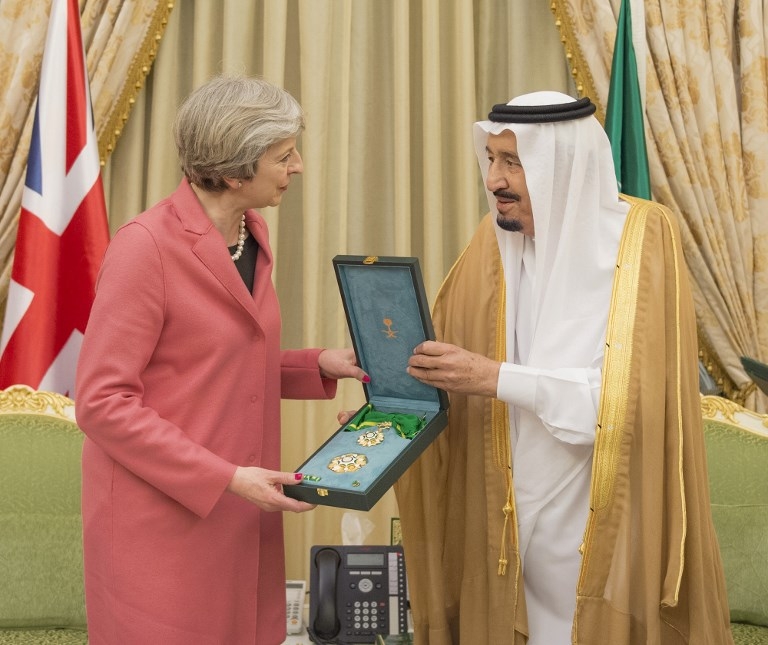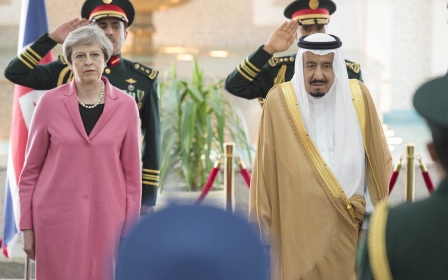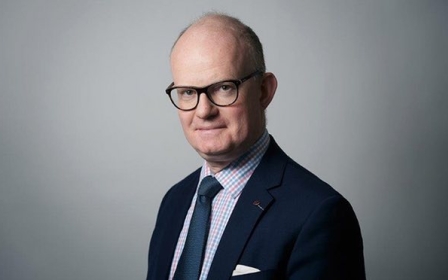Saudi Arabia accused of being chief foreign sponsor of UK 'extremists'

Britain's prime minister, Theresa May, was under mounting pressure on Tuesday to publish a government report into foreign funding of British "extremist groups", after claims by a right-wing think-tank that Saudi Arabia was "at the top of the list".
The report from the Henry Jackson Society said there was a "clear and growing link" between overseas funds and "hate preachers and jihadist groups promoting violence", and named Saudi Arabia - Britain's biggest ally in the Gulf and a major arms buyer - as the biggest overseas influence.
The society called for a public inquiry into the role of Saudi Arabia and other Gulf nations, adding to calls for the release of a Home Office-led report, completed six months ago, into foreign funding of "extremist groups" in the UK.
Uncomfortable reading for Riyadh
The think-tank report will make uncomfortable reading for British ministers, who maintain close diplomatic, security and economic ties with the Gulf, and particularly Saudi Arabia.
It alleges Saudi Arabia is spreading what it describes as an "illiberal, bigoted Wahhabi ideology" by supporting and in some cases directly controlling mosques and educational institutions in the UK.
The report claims: "Saudi Arabia has, since the 1960s, sponsored a multimillion-dollar effort to export Wahhabi Islam across the Islamic world, including to Muslim communities in the West.
A number of Britain’s most serious Islamist hate preachers sit within the Salafi-Wahhabi ideology and are linked to extremism sponsored from overseas
- Henry Jackson Society report
"In the UK, this funding has primarily taken the form of endowments to mosques and Islamic educational institutions, which have in turn played host to extremist preachers and the distribution of extremist literature.
"Influence has also been exerted through the training of British Muslim religious leaders in Saudi Arabia, as well as the use of Saudi textbooks in a number of the UK’s independent Islamic schools."
It adds: "A number of Britain’s most serious Islamist hate preachers sit within the Salafi-Wahhabi ideology and are linked to extremism sponsored from overseas, either by having studied in Saudi Arabia as part of scholarship programmes, or by having been provided with extreme literature and material within the UK itself."
'Embarrasing for Theresa May'
Dr Kristian Ulrichsen, an associate fellow at the Chatham House think-tank, said the report "from a right-wing think tank [would be] acutely embarrassing for Theresa May and difficult politically for her government to dismiss."
The Home Office declined to comment on the society's report.
The Saudi embassy in London said the accusations in the Henry Jackson report, which draws primarily on media reports, were "baseless and lack credible evidence".
Tom Wilson, a fellow at the Centre for the Response to Radicalisation and Terrorism at the society – and author of the report, said: "While countries from across the Gulf and Iran have been guilty of advancing extremism, Saudi Arabia is undoubtedly at the top of the list."
Saudi Arabia was estimated to be spending at least $2bn annually on promoting Wahhabism worldwide, Wilson found. By 2015 that figure was reported to have doubled. Exact figures for funding in the UK are unknown but in 2008 an estimated 68 mosques were adhering to Salafism and Wahhabism, the report found.
Seven years later, the number of British mosques identified with Wahhabism had risen to 110.
However, the report does not solely focus on Saudi Arabia and also points to funding from Iran, as well as focusing on the Qatari-funded Al-Muntada Trust, which has reportedly been connected with a number of mosques where radicalisation has taken place.
It highlights the case of a small group young British men from Cardiff who attended the al-Muntada-linked al-Manar mosque. It has been suggested that their attendance at the mosque was "significant in their radicalisation and decision to travel to Syria and join the Islamic State".
'Very worrying'
The Henry Jackson Society has previously been accused of promoting anti-Muslim sentiment and has strong links to neo-conservative organisations in the United States. In March Middle East Eye reported that Met Police deputy chief Mark Rowley missed a launch of a previous report by the think tank, amid accusations it was "demonising" Muslims.
Endorsing the report, Labour MP Dan Jarvis said it shed light on "very worrying" links between Saudi Arabia and the funding of extremism and he called for the prime minister to release its report on foreign funding.
He told the BBC: "In the wake of the terrible and tragic terrorist attacks we have seen this year, it is vital that we use every tool at our disposal to protect our communities," he said.
"This includes identifying the networks that promote and support extremism and shutting down the financial networks that fund it."
He said the proposed Commission for Countering Extremism, a new body intended to expose examples of extremism in civil society, should make the foreign funding of UK institutions a priority.
Middle East Eye propose une couverture et une analyse indépendantes et incomparables du Moyen-Orient, de l’Afrique du Nord et d’autres régions du monde. Pour en savoir plus sur la reprise de ce contenu et les frais qui s’appliquent, veuillez remplir ce formulaire [en anglais]. Pour en savoir plus sur MEE, cliquez ici [en anglais].




